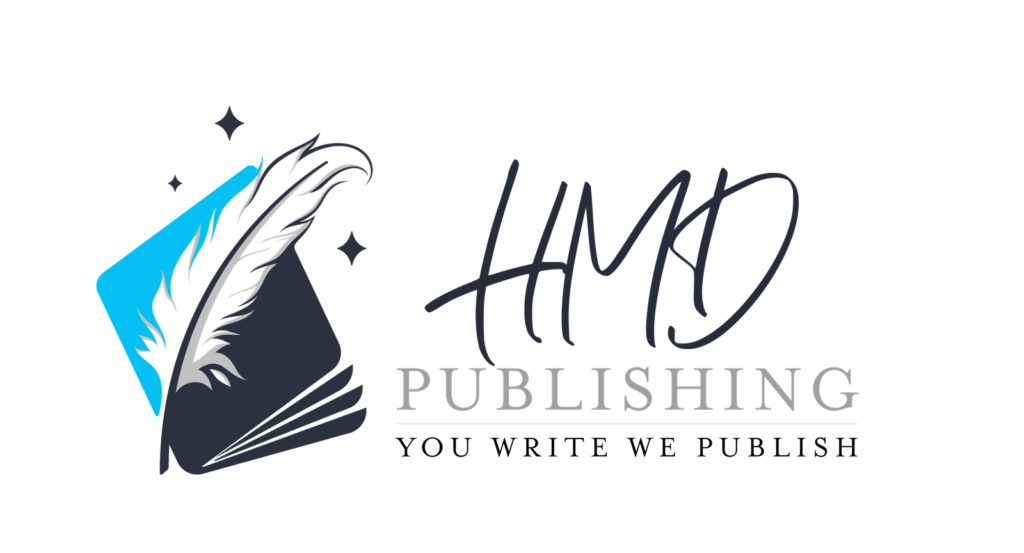Introduction: The Financial Reality of Self-Publishing
Have you been told that self-publishing is practically free these days? Or maybe you’ve heard horror stories about authors spending their life savings with little return?
The truth about self-publishing costs lies somewhere in between these extremes. Yes, you can technically publish a book for almost nothing—but should you? And no, you don’t need to spend $10,000+ to produce a quality book—but what’s the right amount to invest?
As someone who’s helped hundreds of authors navigate the self-publishing journey, I’ve seen the full spectrum of budgets and outcomes. This post will give you an honest, numbers-based breakdown of what it really costs to self-publish a book in 2025, and where your money will make the biggest difference.
Let’s cut through the myths and marketing to uncover the actual investment required to create a professional book that can compete in today’s crowded marketplace.
The Essential Investment Areas
Before diving into specific numbers, it’s important to understand the core areas where self-publishing requires investment:
- Editorial (making your content the best it can be)
- Design (creating a professional visual presentation)
- Production (creating the actual book products)
- Distribution (making your book available to readers)
- Marketing (helping readers discover your book)
Some of these areas allow for significant DIY savings, while others generally demand professional assistance. Let’s explore each in detail.
Editorial Costs: Polishing Your Manuscript
Editorial work typically involves several distinct services:
| Service | Description | Average Cost Range |
| Developmental Editing | Big-picture feedback on structure, plot, characters, etc. | $0.03-0.09 per word ($2,400-7,200 for 80K words) |
| Copy Editing | Sentence-level improvements to grammar, clarity, and flow | $0.02-0.04 per word ($1,600-3,200 for 80K words) |
| Proofreading | Final error check before publication | $0.01-0.02 per word ($800-1,600 for 80K words) |
| Beta Reading | Early feedback from target readers | $0-500 (often free from volunteer readers) |
The Bare Minimum: Basic proofreading is essential even on the tightest budget. A book filled with typos and grammatical errors will receive negative reviews and damage your reputation as an author.
Investment Impact: Editorial quality directly affects reader experience and reviews, which drive ongoing sales. Many successful self-published authors consider developmental editing their most important investment.
Design Costs: Creating a Professional Package
Design elements that require consideration:
| Element | Description | Average Cost Range |
| Cover Design | The single most important marketing asset | $100-2,500 |
| Interior Layout | How your book looks inside | $200-1,500 |
| Ebook Formatting | Digital version of your book | $50-500 |
| Logo/Author Branding | Optional but valuable for marketing | $200-1,000 |
The Bare Minimum: A professional cover design is non-negotiable. Readers absolutely judge books by their covers, and amateur designs signal amateur content.
Investment Impact: Your cover is your primary marketing tool and the first quality signal readers notice. Interior design affects readability and perceived value, particularly for print books.
Production Costs: Making Your Book Tangible
The actual creation of your book files and physical copies:
| Service | Description | Average Cost Range |
| ISBN | Unique identifier for your book | $0-125 per title |
| Print Setup | Setting up your book with POD services | $0-100 |
| Ebook Conversion | Technical file preparation | $0-200 |
| Print Proof Copies | Physical samples to review | $15-50 including shipping |
| Initial Print Run | Optional bulk printing | $500-5,000 for 200-1,000 copies |
The Bare Minimum: Using print-on-demand services like KDP Print or IngramSpark keeps upfront production costs near zero, with ISBNs being the main potential expense.
Investment Impact: Production quality affects reader experience and your flexibility in distribution channels. Free ISBNs come with limitations on where you can sell your book.
Distribution Costs: Getting Your Book to Readers
Getting your book into various sales channels:
| Service | Description | Average Cost Range |
| Online Retailers | Amazon, Barnes & Noble, etc. | 30-70% of list price (commission) |
| Platform Fees | Annual fees for some distribution services | $0-100 per year |
| Wide Distribution | IngramSpark or similar service | $25-49 setup + commissions |
| Direct Sales Setup | Your website or Shopify store | $0-500 setup + 3-5% transaction fees |
The Bare Minimum: Most digital distribution channels have no upfront costs but take a percentage of each sale.
Investment Impact: Wider distribution gives you more sales opportunities but may involve setup fees and higher per-sale costs.
Marketing Costs: Making Your Book Visible
Options for promoting your book:
| Service | Description | Average Cost Range |
| Author Website | Your online home base | $0-3,000 setup + $50-300/year hosting |
| Email Marketing | Building a reader list | $0-50/month |
| Social Media | Building audience connections | $0-1,000/month (organic vs. paid) |
| Amazon Ads | Pay-per-click advertising | $100-1,000/month budget |
| BookBub & Similar | Featured book promotions | $0-1,000 per promotion |
| Launch Support | PR, blog tours, etc. | $0-3,000 |
The Bare Minimum: Setting up author social media accounts and a basic mailing list are free initial steps.
Investment Impact: Marketing is where many self-publishers eventually spend the most money, as discoverability is the biggest challenge in today’s crowded book market.
Hidden Costs Many Authors Overlook
Beyond the obvious expenses, be prepared for:
- Education: Learning the publishing industry ($0-1,000 for courses, books, webinars)
- Software: Writing, design, and marketing tools ($0-500/year)
- Time investment: The hundreds of hours to learn and implement processes
- Updates and revisions: Fixing errors discovered post-launch ($50-300)
- Tax and business setup: Registering business entities, accounting ($0-1,000)
- Continuing marketing: Ongoing promotion for sustainable sales
The time cost is particularly significant—many authors underestimate how many hours they’ll spend on non-writing tasks.
Budget Breakdown: From Shoestring to Premium
Here’s what total costs typically look like at different budget levels:
Shoestring Budget: $500-1,000
- DIY editing with beta readers and software assistance
- Pre-made cover design ($50-300)
- DIY formatting with templates
- Free ISBNs from distributors
- Basic author website and social media
- Minimal paid marketing
Mid-Range Budget: $2,000-4,000
- Professional proofreading and possibly copy editing
- Custom cover design ($300-800)
- Professional formatting for print and ebook
- Purchased ISBNs for multiple formats
- Basic author website and mailing list service
- Modest advertising budget
Professional Budget: $5,000-8,000
- Full developmental and copy editing plus proofreading
- Premium custom cover design ($800-1,500)
- Professional interior design for print and ebook
- Complete ISBN package
- Professional author website and marketing materials
- Structured launch campaign and ongoing ads
Premium Budget: $10,000+
- Multiple rounds of editing with specialized editors
- High-end cover design with custom photography/illustration
- Premium interior design with special features
- Full distribution setup including specialty channels
- Professional marketing campaign with publicist
- Extensive advertising budget
Is Self-Publishing Worth the Investment?
To answer this critical question, consider:
Average First-Book Sales: Most self-published books sell fewer than 250 copies in their lifetime. With an average $3-4 profit per book, that’s $750-1,000 in revenue—often less than the production costs.
Long-Term Perspective: Successful self-publishers view their first book as an investment in a career, not a standalone profit center. Your early books build audience, platform, and skills.
Non-Financial Returns: Many authors value creative control, speed to market, and higher royalty percentages over immediate profit.
Series Advantage: Authors who publish series rather than standalone books typically see better return on investment as readers move through multiple titles.
Cost-Saving Strategies Without Sacrificing Quality
Smart ways to reduce costs while maintaining professional standards:
- Skill exchange: Trade services with other creative professionals
- Phased investment: Start with essentials, reinvest profits into upgrades
- Hybrid approach: DIY where you’re skilled, outsource where you’re not
- Crowdfunding: Pre-sell your book to cover production costs
- Traditional for some elements: Consider small presses for specific aspects
- Build gradually: Focus on one format first, expand after success
- Join associations: Organizations like ALLi offer member discounts
Most Dangerous Corner-Cutting: Skimping on editing and cover design almost always hurts sales more than the upfront savings justify.
Conclusion: Planning Your Self-Publishing Budget
Self-publishing doesn’t have to break the bank, but understanding the real costs helps you make informed decisions about where to invest your limited resources.
A sensible approach for most new authors:
- Start with learning: Invest time before money
- Focus on the product: Editing and cover design deserve priority
- Use free distribution: Leverage no-cost platforms initially
- Marketing last: Build your marketing as you learn what works
- Reinvest revenue: Use early sales to fund improvements
Remember that self-publishing is a business, and like any business, it requires some startup capital. Setting realistic expectations about both costs and returns will help you navigate the journey successfully.
Your Action Step: Create an itemized budget for your book project with three columns—minimum viable product, target budget, and ideal scenario. This will help you prioritize spending and identify areas where you can save without compromising quality.
Have questions about self-publishing costs? Comment below with your budget concerns, and I’ll help you prioritize your investments for maximum impact.




